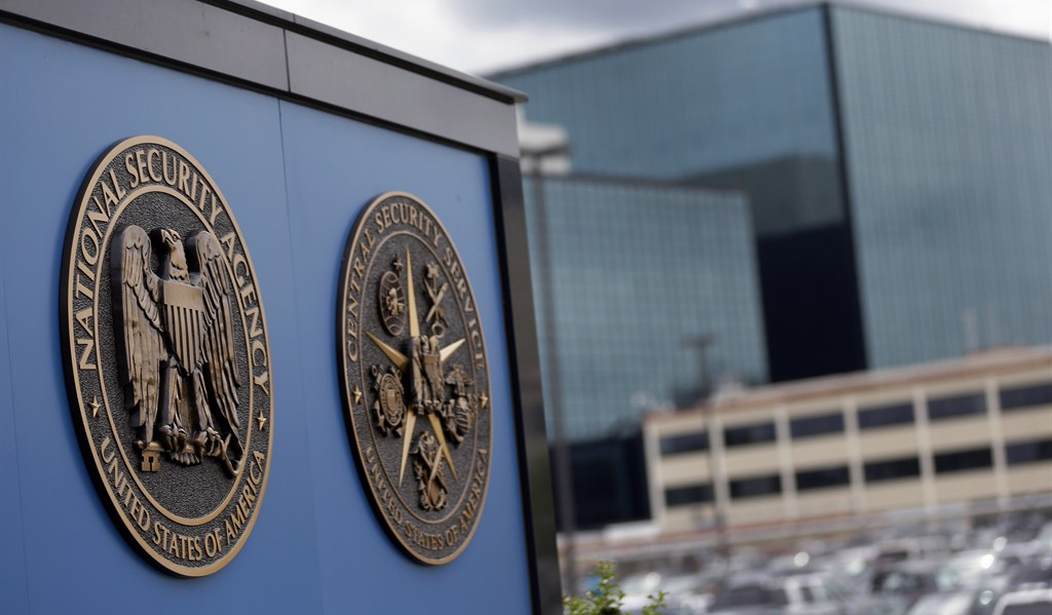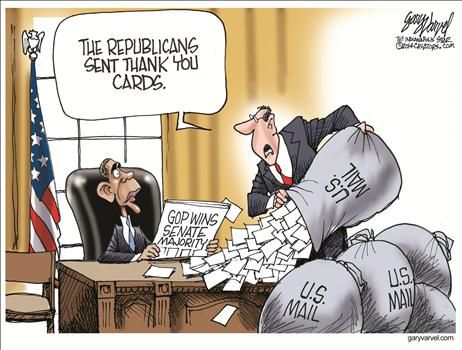It’s not uncommon for people to accuse libertarians of using “scare tactics” and “hyperbole.”
They say we present “worst-case scenarios” of what happens when government gets involved, such as when I warn that a value-added tax would become a revenue machine for big government or when I point out that advocates of gun control won’t be satisfied until they ban private ownership of weapons.
But I think these “slippery slope” concerns have merit because, well, the slope very often is slippery.
Consider the federal income tax, which started as a simple 2-page form with a top rate of 7 percent, but now has become a 75,000-page monstrosity with confiscatory rates.
 Consider the Clean Water Act, which was enacted to regulate “navigable waterways,” but now has metastasized to the extent that the government now tries to regulate ponds on private property and control the building of houses on dry land.
Consider the Clean Water Act, which was enacted to regulate “navigable waterways,” but now has metastasized to the extent that the government now tries to regulate ponds on private property and control the building of houses on dry land.
Consider money laundering laws, which began ostensibly to stop crooks from using ill-gotten gains, but now have become a multi-billion dollar burden that require banks to spy on all customers.
Consider Medicaid, which the Washington Post reported, “was supposed to be a very small program with annual expenditures of about $1 billion,” but now costs taxpayers nearly $500 billion per year.
This list could continue for a long time, but let’s stop with old examples and now look at a new example.
After the 9-11 terrorist attacks, politicians claimed that government needed vast new powers to deal with potential threats. Given the environment that existed at the time, laws such as the PATRIOT Act were enacted.
So has the government used its new powers in a targeted way, focusing solely on bad people who want to kill Americans?
Hardly. The folks at Reason report that extraordinary laws enacted to fight terrorism are now mostly being used to enforce drug prohibition.
Recommended
When the security state types pushed for passage of the Patriot Act, one of the measures on which they insisted was the inclusion of “sneak and peek” warrants. …Of course, it didn’t take long for law enforcement to discover this security state tool and start putting it to very different use—mostly in the enforcement of drug prohibition.
The article then cites some of the work of the Electronic Frontier Foundation.
Out of the 3,970 total requests from October 1, 2009 to September 30, 2010, 3,034 were for narcotics cases and only 37 for terrorism cases (about .9%). Since then, the numbers get worse. The 2011 report reveals a total of 6,775 requests. 5,093 were used for drugs, while only 31 (or .5%) were used for terrorism cases. The 2012 report follows a similar pattern: Only .6%, or 58 requests, dealt with terrorism cases. The 2013 report confirms the incredibly low numbers. Out of 11,129 reports only 51, or .5%, of requests were used for terrorism. The majority of requests were overwhelmingly for narcotics cases, which tapped out at 9,401 requests.
Wow. Less than 1 percent of these warrants are for fighting terrorism.
 And notice how the number of sneak-and-peek warrants has jumped so dramatically. The government expanded its power and we were told that our rights would be protected because the new power would be used in rare circumstances for the extraordinary task of fighting terror.
And notice how the number of sneak-and-peek warrants has jumped so dramatically. The government expanded its power and we were told that our rights would be protected because the new power would be used in rare circumstances for the extraordinary task of fighting terror.
Now that new power is being used promiscuously for all sorts of purposes.
By the way, it doesn’t happen only in America. Check out these excerpts from a story in the U.K.-based Times.
Sajid Javid, the culture secretary, said that the [BBC’s] use of the Regulation of Investigatory Powers Act (Ripa) will be included in a wider investigation into enforcement of the TV licence fee, which was launched in response to concerns that too many people were being prosecuted for not paying the £145.50 charge. Ripa, which was introduced to combat serious crime and terrorism, has been under scrutiny after it emerged that it was used by police to obtain journalists’ sources. Yesterday, MPs on the Commons’ culture, media and sport committee said that the BBC had used the surveillance powers against people suspected of evading the licence fee… Ministers have raised concerns that 180,000 people a year are prosecuted, while the BBC argues that removing the threat of criminal action would cost it millions of pounds a year in lost revenue. …John Whittingdale, chairman of the culture committee, said…“Most people regarded Ripa as a fairly draconian measure which was necessary to tackle organised crime and terrorism. Not paying your licence fee hardly falls into that category.”The BBC…said that it was “perfectly legal”. …A BBC spokesman said: “Legislation explicitly grants the BBC the right to use these powers to detect unlicensed use of television receivers...”
Yes, you read correctly. A “draconian” measure to fight terrorism is being used to investigate people who watch TV.
I’m not sure which example is worse, the U.S. government using anti-terror laws to go after potheads or the U.K. government using anti-terror laws to go after the horrible crime of …gasp… untaxed televisions.
But maybe this post could be part of my U.K. vs. U.S. government stupidity contest.
Though this isn’t a laughing matter. If government bureaucrats are already misusing new powers granted last decade, just think how they’ll be abusing those powers next decade.
P.S. Since today’s column indirectly deals with terrorism, it’s a good opportunity for me to recycle some Osama bin Laden jokes, as well as these satirical examples ofterror alert levels in Europe.
P.P.S. I shared some amusing cartoons a few days ago as part of my election analysis. Here’s one that definitely belongs in that collection.
He’s already won “man of the year” from libertarians, so Republicans may as well give him awards as well.


























Join the conversation as a VIP Member